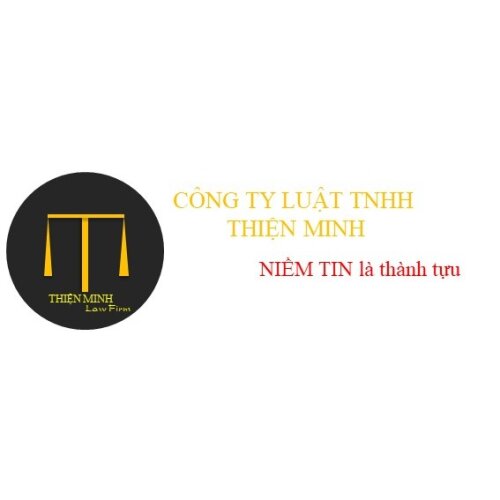Best Will & Testament Lawyers in Vietnam
Share your needs with us, get contacted by law firms.
Free. Takes 2 min.
Or refine your search by selecting a city:
List of the best lawyers in Vietnam
About Will & Testament Law in Vietnam
In Vietnam, Will & Testament laws are designed to ensure that a person's wishes regarding the distribution of their assets are honored after their death. The process is governed by the Civil Code, which details how wills should be made, executed, and disputed. A legally valid will can help in avoiding disputes among heirs and ensure that the deceased's property is distributed according to their desires. Wills can be self-made or executed with the assistance of a lawyer, and must meet certain legal requirements to be considered valid.
Why You May Need a Lawyer
There are several situations where engaging a lawyer can be beneficial when dealing with a Will & Testament in Vietnam. These include:
- When drafting a will to ensure it meets all legal requirements and clearly states your wishes.
- If you need advice on how to fairly distribute a complex estate or have specific conditions for your heirs.
- When there are disputes or contentions among the beneficiaries that require mediation or legal intervention.
- If you need to amend or revoke a will that has already been drafted.
- For assistance with the procedural aspects of executing a will and handling the estate after someone has passed away.
Local Laws Overview
The legal framework for Will & Testament in Vietnam is primarily outlined in the Civil Code of Vietnam. Key aspects include:
- The Testator must be at least 18 years of age and possess full cognitive capabilities. Minors aged between 15 and 18 can make a will with parental consent.
- The will must be in writing and can be either notarized or witnessed by at least two persons to be valid.
- The presence of a third person is mandated if the will is orally made, and it must be recorded in writing thereafter.
- The Civil Code allows the testator to freely dispose of their property but stipulates certain statutory rights for heirs at law, typically the spouse, parents, and children.
- Wills can be amended or revoked at any time by the testator.
Frequently Asked Questions
What is a will in Vietnam?
A will is a legal document where a person (testator) outlines their wishes about how their assets should be managed and distributed after death.
Who can make a will?
Any person who is at least 18 years old and of sound mind, as well as minors aged between 15 and 18 with parental consent, can make a will in Vietnam.
Does a will need to be notarized?
While not mandatory, notarization of a will in Vietnam can ensure its legal validity and reduce the likelihood of disputes.
Can a will be challenged?
Yes, wills can be contested on grounds such as lack of testamentary capacity, fraud, coercion, or undue influence.
What happens if someone dies without a will?
If a person dies intestate (without a will), their estate will be distributed according to Vietnamese succession laws, which prioritize close family members.
Can I change my will?
Yes, you can amend or entirely revoke your will at any time before death, provided you are of sound mind and meet the legal requirements.
Are digital wills valid in Vietnam?
As of the latest laws, digital wills are not recognized in Vietnam. Wills must be in written form.
How are properties inherited under Vietnamese law?
Property is typically distributed according to the will. In the absence of a will, it follows statutory inheritance rules among close relatives.
Do foreigners need a will in Vietnam?
Foreigners owning property or assets in Vietnam should consider creating a local will to handle the distribution of their Vietnamese assets.
Where should I keep my will?
It is advisable to store your will in a secure location, such as a safe with trusted third-party access, or with a legal advisor.
Additional Resources
Here are some resources and organizations that can provide further guidance on Will & Testament in Vietnam:
- Ministry of Justice of Vietnam: Provides information on Vietnamese civil laws and notary services.
- Local notary offices: Offer will drafting and notarization services.
- Legal aid centers: Provide free or low-cost legal advice and services.
- Vietnam Bar Federation: Offers resources for finding qualified lawyers specializing in Will & Testament law.
Next Steps
If you're considering drafting a will or need guidance relating to a Will & Testament in Vietnam, here are the steps you should take:
- Consult with a qualified lawyer experienced in Vietnamese Will & Testament law. They can provide personalized advice and assist with document preparation.
- Collect all necessary documentation, such as property deeds, identification, and list of assets, before meeting with your lawyer.
- Clearly outline your wishes and any specific conditions you want to include in your will.
- Once drafted, have your will notarized or witnessed to ensure its legal validity.
- Periodically review and update your will to reflect any significant changes in your life.
Lawzana helps you find the best lawyers and law firms in Vietnam through a curated and pre-screened list of qualified legal professionals. Our platform offers rankings and detailed profiles of attorneys and law firms, allowing you to compare based on practice areas, including Will & Testament, experience, and client feedback.
Each profile includes a description of the firm's areas of practice, client reviews, team members and partners, year of establishment, spoken languages, office locations, contact information, social media presence, and any published articles or resources. Most firms on our platform speak English and are experienced in both local and international legal matters.
Get a quote from top-rated law firms in Vietnam — quickly, securely, and without unnecessary hassle.
Disclaimer:
The information provided on this page is for general informational purposes only and does not constitute legal advice. While we strive to ensure the accuracy and relevance of the content, legal information may change over time, and interpretations of the law can vary. You should always consult with a qualified legal professional for advice specific to your situation.
We disclaim all liability for actions taken or not taken based on the content of this page. If you believe any information is incorrect or outdated, please contact us, and we will review and update it where appropriate.
Browse will & testament law firms by city in Vietnam
Refine your search by selecting a city.
















